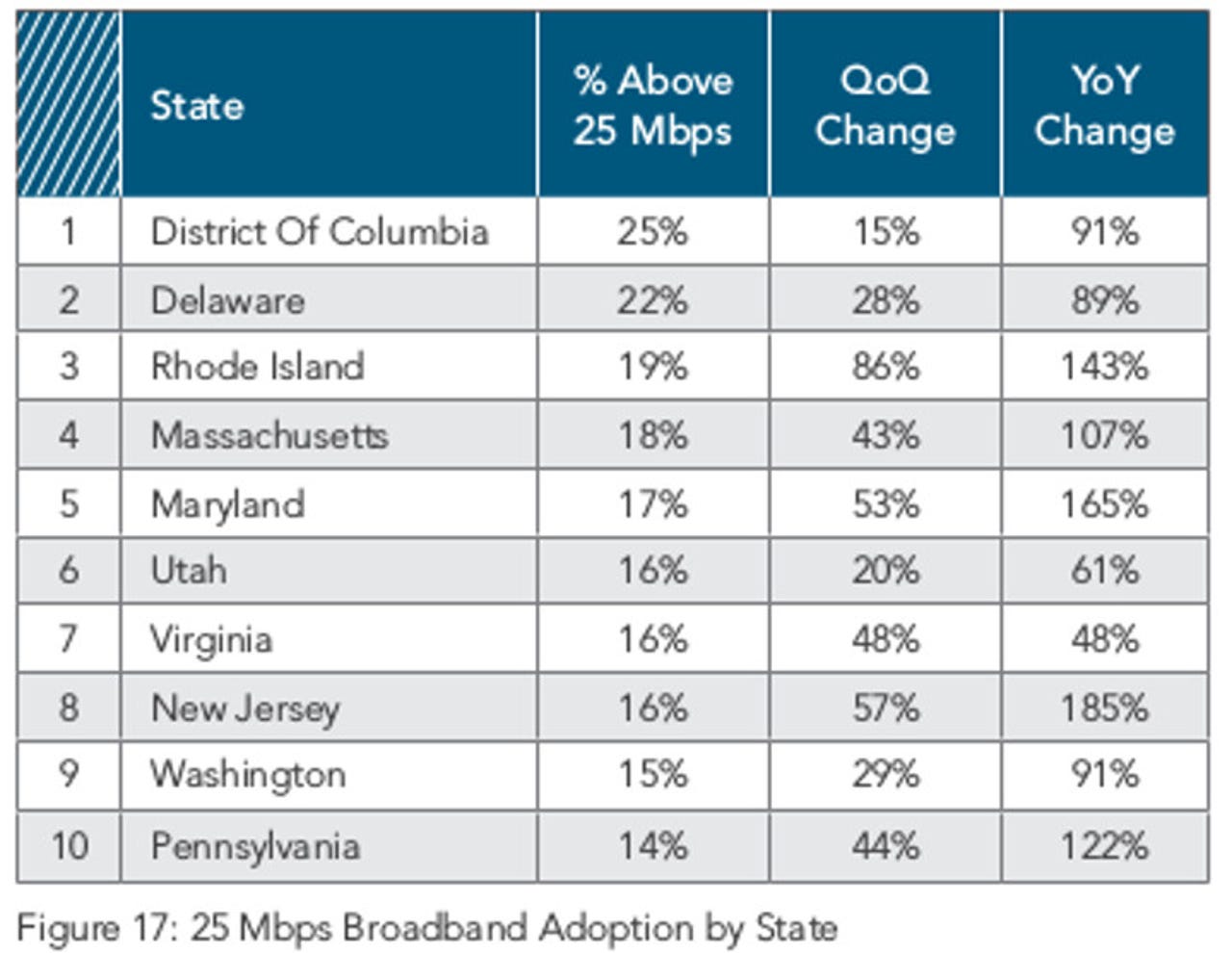The Internet is getting faster, a lot faster

Is there anyone on the planet who doesn't want faster Internet speeds? I don't think so. So, it's good news that Akamai, a global content delivery network (CDN) services leader, has found, as reported in its latest State of the Internet Report, that the "global average connection speed increased 8.6 percent to 5.6 Mbps from the third quarter, a 23 percent increase year-over-year.

By the FCC's new broadband definition, 25 Mbps down, no state makes the grade, but the US Internet is still much faster than it was in previous quarters.
5.6 Mbps isn't much. According to the United States Federal Communications Commission's (FCC) recent proposal to raise the definition of broadband from 4 Mbps down/1 Mbps up to 25 Mbps down/3 Mbps up, it doesn't even count as broadband. That said, it's still much better.
Akamai's State of the Internet: Q4 2015 Report editor David Belson said:
This quarter's report shows great year-over-year growth in average connection speeds and overall broadband adoption. This is particularly important as consumer expectations rise and many high-profile events, like the summer games in Rio, will be streamed this year. The progress we're seeing across our key metrics shows that, while there's still work to be done, more parts of the world are increasingly able to support the delivery of broadcast-quality video content online.
You can't understate how much bandwidth broadcast video content takes up on the Internet. In Sandvine's Global Internet Phenomena Report. real-time entertainment streaming video and audio traffic now take up over 70 percent of North American downstream traffic in the peak evening hours. Netflix alone accounts for 37.1 percent of prime-time downstream traffic.
Globally, Akamai has discovered that South Korea had the top average connection speed at 26.7 Mbps, posting a 20 percent increase over the fourth quarter of 2014. Internet users in the United States wish they had it so good.
The average connection speeds among the top ten connected states continued to increase. Even the fastest, the District of Columbia, only had an average Internet speed of 21.3 Mbps. Of the top ten states, the average connection speeds were all above 15 Mbps. That may not be broadband by the FCC's new definition, but it's a heck of a lot better than the previous quarter's average of 8 Mbps
Indeed, globally, only 7.1 percent of unique IP addresses connected to Akamai at average speeds of at least 25 Mbps. Still that's a dramatic 37 percent increase over the previous quarter. Year-over-year, global 25 Mbps adoption increased by 74 percent, in contrast to the 15 percent yearly decrease seen in the third quarter.
Things will get faster though. Akamai reported "that continuing the trend we have seen over the past year, the fourth quarter saw numerous announcements of new gigabit-plus broadband service roll-outs across the country. Google Fiber revealed five additional cities under consideration, including Chicago and Los Angeles."
Google is also forcing the hand of other Internet Service Providers (ISP)s. In December, AT&T, Comcast, and Cox Communications all publicized ambitious plans for their own gigabit services
Taken all together, the United State ranks 14th in the world with 14.2 Mbps. That's a 29 percent speed improvement year over year.
Related Stories: